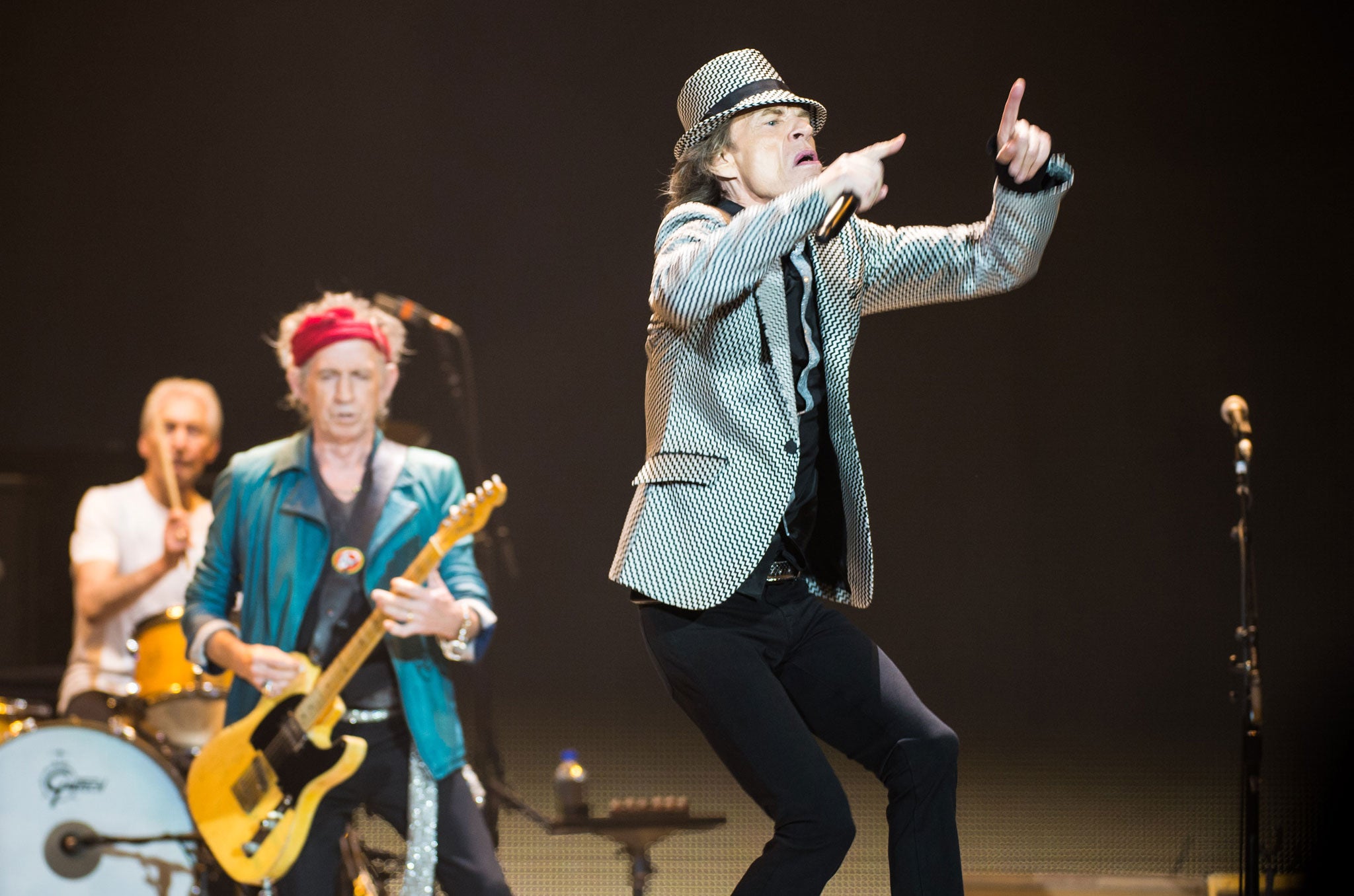Mick and Sonny are still rockin' on, but will Madonna and Robbie last as long?
When it comes to age expectations, why do we have different rules for musicians in rock, jazz and blues?


There he was, a man well beyond pensionable age, dominating the stage and delivering a memorable performance with the stamina of a 20-something. Yes, Sonny Rollins gave a great show at the London Jazz Festival, yet few people commented on the legendary saxophonist's age of 82, and none added up the combined ages of his band.
That's the thing with jazz musicians. We expect them to be old and carry on performing until they drop. Likewise blues singers and guitarists. No one would dream of saying that it's time that 87-year-old BB King made a dignified exit from the stage. Other veterans, notably Leonard Cohen at 77, give a subtle virtuoso stage performance that demands little movement from the main player.
Genuine rock is different. The Rolling Stones this week received terrific reviews, yet there were, as always in recent years, expressions of astonishment that they dare to perform. And, inevitably, there was the ubiquitous and tedious adding up the combined ages of the group. The last time I encountered Mick Jagger, he said to me wearily that journalists show that they can all do arithmetic.
Mind you, it's not just journalists who worry about rock stars continuing past their prime. Paul McCartney told me last week that 20 years ago his own manager at the time said it would be "unseemly" for him to perform live at 50. McCartney continues to tour, what he said to the manager is unrecorded. So, why is it that we have different rules and different expectations for musicians in rock, jazz and blues? Part of the reason, of course, is that there is a sexual element, a swagger, a strut in rock, particularly as today's veterans are inextricably linked to the youth explosion of the Sixties. The Stones and The Who cannot easily be allowed to grow old gracefully and be, Sonny Rollins-style, all music and no swagger.
Women are not exempt from this dilemma. Fifty-four year old Madonna's show remains high energy, relying on non-stop choreography and as much sexual suggestion and swagger as Jagger had in his prime.
And then to cap it all, Robbie Williams said in a piece of public therapy this week: "The fact that 40 is looming plays more on my mind than it does anyone else's mind because pop stars cease to be pop stars at 40 and start to be old people singing, don't they?"
It's all mighty confusing. So here are my predictions for how the next 10 years will pan out: The Stones will carry on, but gradually return more to their blues roots and do a lower energy show; Robbie will discover on turning 40 that it doesn't seem as old as he thought; Madonna will retire gracefully.
OK, here are my real predictions: The Stones will carry on with their usual brilliant show until destiny or Mick's doctor intervenes; Robbie will become the middle-aged swing singer he always wanted to be anyway; Sonny Rollins will, lungs permitting, play from a seated position when he is 90; and Madonna will rail with some justification against a sexist world that advises her to leave the stage at 60.
Hard facts can impress this Government
It was good that leading arts figures at the Evening Standard Theatre Awards, hit out at government arts cuts past and (almost certainly) future. I made the point here last week as someone who also feared another round of cuts that I wanted the rhetoric to be accompanied by statistics on how the arts had suffered. I share the passion of the above mentioned people to safeguard the golden age we have been seeing in the arts. I just believe that the argument carries even more force with real examples. Roddy Gauld, chief executive of Bolton's Octagon theatre, contacted me to say: "If the Government cared about the arts then, yes, stats would do it. We need to get them to care and believe first though." Maybe, but I suspect that this Government, like Mr Gradgrind, wants hard facts.
The obstacle to a good British road movie
Now here's a theory... Ben Wheatley, director of the new film Sightseers, told this paper that there was a reason why there were fewer British road movies than American ones. He said: "I think the thing that American road movies have, is that they don't have any roundabouts, so you can go a lot further in a straight line. I wouldn't like to see Dennis Hopper riding around a roundabout on his Chopper in Easy Rider. It would have been a bit awkward." It's a brilliant treatise. And how sad that we have missed out on an artistic genre because of traffic-flow control.

Join our commenting forum
Join thought-provoking conversations, follow other Independent readers and see their replies